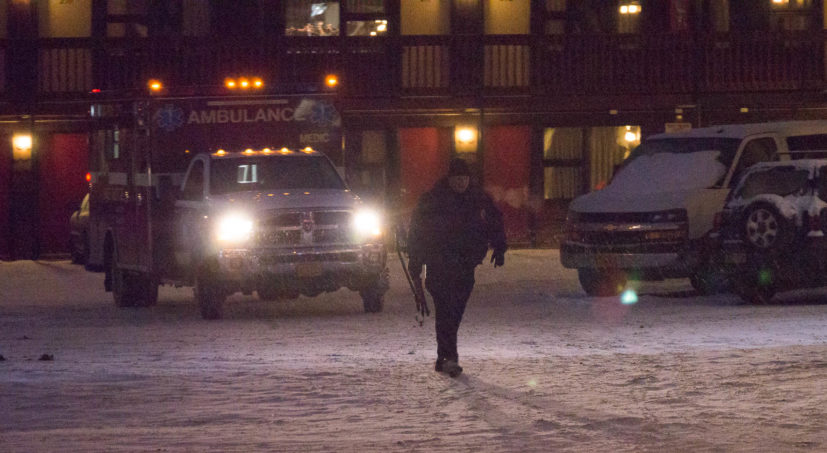
Alaska Native tribes and tribal health organizations have joined a federal lawsuit against the prescription drug industry over the opioid crisis.
Alaska Natives and Native Americans as a whole are fatally overdosing at a higher rate than the rest of the U.S. population. That’s according to the Centers for Disease Control and Prevention.
Rob Sanderson, Jr. is a leader on the executive committee of Central Council of Tlingit and Haida Indian Tribes of Alaska. He said addiction often starts on prescription drugs. When the supply of prescription pills runs out they turn to the street.
“You see people that you would never have thought would get addicted to heroin,” Sanderson said. “It’s everywhere. You see it with the rich, the poor – the in-between – you see everybody.”
Nearly 450 tribes have filed briefs in support of the plaintiffs in a lawsuit against the opioid industry.
“This is an epidemic and a crisis that is devastating Indian Country proportionally, to a much a greater degree than the crisis is having an impact in other parts of the country,” said Geoffrey Strommer, a Portland, Oregon-based attorney helping direct the tribes’ efforts.
Legal experts say the federal multi-district litigation filed in Ohio involves more than a dozen states and thousands of municipalities – and now hundreds of tribes.
“And that’s different from some of the other large-scale litigations that people have compared this case to, most notably tobacco litigation,” said Adam Zimmerman, a law professor at Loyola Law School in Los Angeles. He said that 1998 settlement ordered the tobacco industry to pay states more than $200 billion over 25 years.
But much of that settlement went to state coffers.
Alaska’s Attorney General’s office filed its own lawsuit after Gov. Bill Walker declared a public health emergency over opioids last year.
Zimmerman says it’s clear tribal councils don’t want to leave it up to the states if and when it comes time to share any global settlement.
“They note how tribal sovereignty is very, very, very different,” Zimmerman said, “than the kind of relationships between a city and a state government or the state and the federal government and how important it is that they have a seat at the table.”
Tribal health organizations in Alaska have also filed suit.
The Southeast Alaska Regional Health Consortium – known as SEARHC – operates clinics in at least 20 communities down Alaska’s panhandle. It was among several tribal health organizations in Alaska that joined last month as a plaintiff.
Strommer said tribal health organizations are on the front lines.
“SEARHC, just like other health providers in the state, has seen an increase in resource allocation focused on addressing the impacts of the opioid crisis,” Strommer said.
The increasingly complex opioid lawsuit is in the hands of a federal judge in Cleveland.
With the list of plaintiffs growing by the week, it could even surpass the 1998 tobacco settlement to become the largest lawsuit in U.S. history.
Jacob Resneck is CoastAlaska's regional news director in Juneau.




